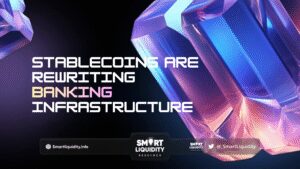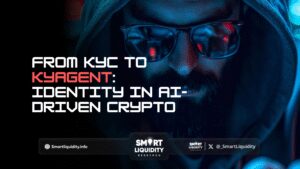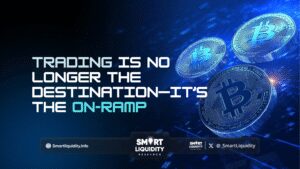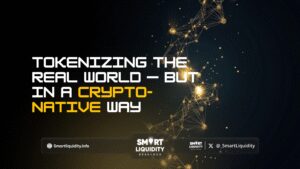How Web3 Transforms Digital Marketing


Digital marketing has evolved from basic SEO to AI and influencer-driven strategies. Now, Web3—powered by blockchain, dApps, and tokenization—is set to transform the space. Offering decentralization, transparency, and user ownership, Web3 will reshape brand engagement, consumer interaction, and value exchange.
Decentralization and Consumer Data Privacy
One of the core features of Web3 is decentralization, which directly impacts how data is handled and shared. Unlike Web2, where large companies control vast amounts of user data, Web3 enables users to own their data. Through blockchain technology, individuals can control access to their personal information, choose which companies or platforms can use it, and even monetize it themselves.
For digital marketers, this shift means they will no longer have direct access to a massive pool of personal data that was previously easy to acquire and leverage. This could limit traditional forms of data-driven advertising, such as targeted ads based on browsing history, but it also opens up new possibilities for more ethical and transparent data practices.
| Web2 Marketing | Web3 Marketing |
| Centralized data control | Decentralized data ownership by users |
| Data collection via third parties | Users control who accesses their data |
| Limited consumer privacy | Enhanced privacy through blockchain |
Implications for Marketers:
- Digital marketers will need to develop more transparent and ethical approaches to gather consumer data.
- They will have to shift focus to data that consumers willingly share and ensure greater value exchange for data.
Tokenization and New Revenue Streams
Web3 enables the tokenization of assets, from digital art to virtual goods, through blockchain technology. For marketers, this offers an entirely new landscape for monetization. Brands can create their own tokens, offer incentives to loyal customers, or use blockchain-based rewards systems to engage audiences.
For example, NFTs (Non-Fungible Tokens) can be used to represent exclusive access to products, services, or content. A fashion brand could offer limited-edition NFT items, or a music artist might release exclusive concert tickets in NFT form. This allows marketers to tap into new revenue streams and create unique engagement opportunities.
Use Case:
- NFTs for Brand Loyalty: A popular cosmetics brand could create exclusive digital beauty products as NFTs. By purchasing these NFTs, consumers could unlock special discounts, early product releases, or access to an online community.
| Web2 Revenue Streams | Web3 Revenue Streams |
| Advertisements and subscriptions | Token sales, NFTs, and decentralized finance (DeFi) |
| Brand collaborations | NFT drops, token staking, loyalty programs |
| Direct sales through ecommerce | Enhanced user engagement via decentralized apps (dApps) |
Implications for Marketers:
- Brands need to rethink their digital products and services in the form of tokens or NFTs.
- There is a growing opportunity to foster community loyalty by offering customers digital assets that have tangible or intangible value.
Enhanced Customer Engagement with DAOs
A Decentralized Autonomous Organization (DAO) is a digital organization governed by code and blockchain rather than central authorities. DAOs give users the ability to vote and influence the direction of a project or brand, providing a much higher level of engagement than traditional consumer interaction.
For marketers, DAOs offer a unique way to involve customers in decision-making processes, product development, or brand strategy. By creating a DAO around a product or service, marketers can directly involve their audience in decisions such as design choices, pricing models, or charitable causes the brand supports. This fosters a sense of ownership and deeper engagement.
| Web2 Customer Engagement | Web3 Customer Engagement |
| Surveys and feedback forms | Voting on products, services, and brand initiatives through DAOs |
| Social media interactions | Community-driven development and decision-making |
| Loyalty programs | Participatory rewards and community-driven content creation |
Implications for Marketers:
- Building a brand community through DAOs can result in higher loyalty and consumer advocacy.
- Marketers can use DAOs to tap into collective intelligence and crowdsource ideas.
Smart Contracts and Automated Campaigns
Smart contracts are self-executing contracts with the terms of the agreement directly written into code. These contracts automatically trigger actions once certain conditions are met, removing the need for intermediaries. For marketers, this technology can streamline many aspects of campaign management, from payment processing to incentivizing customer actions.
For instance, a brand can create a smart contract that automatically rewards customers who complete certain actions, such as watching a promotional video or making a purchase. This could significantly reduce the cost and complexity of running digital marketing campaigns, while also ensuring more timely and accurate fulfillment.
Use Case:
- Automated Rewards Program: A retail brand could set up a smart contract that sends tokens to customers when they purchase products, encouraging repeat sales without manual intervention.
| Traditional Campaign Process | Smart Contract Campaign Process |
| Manual tracking of campaign metrics | Automatic execution of contract terms (e.g., rewards distribution) |
| Dependence on third-party platforms | Direct, transparent transactions on the blockchain |
| Delay in rewards or payouts | Instant rewards upon completion of actions |
Implications for Marketers:
- Marketers can reduce overhead costs and errors by automating parts of their marketing workflow with smart contracts.
- Consumers benefit from more seamless and instant rewards and incentives.
Web3 and the Rise of Decentralized Advertising
Web3 promises to shift the power in digital advertising back to the consumers. Traditional digital advertising platforms, like Google and Facebook, rely on centralized systems to collect and sell consumer data. In contrast, decentralized advertising platforms built on blockchain technology allow users to have more control over how their data is used for ads.
In Web3, consumers can opt into advertising networks and get compensated for sharing their data or interacting with advertisements. Platforms like Basic Attention Token (BAT) reward users for viewing ads, creating a more equitable system for both advertisers and consumers.
| Web2 Advertising | Web3 Advertising |
| Centralized data collection | Decentralized, consumer-controlled data sharing |
| Advertisers pay platforms for reach | Consumers get rewarded directly for ad views |
| Ad targeting based on third-party data | Ads are contextual and permissioned by consumers |
Implications for Marketers:
- Web3 allows for more ethical advertising practices, where consumers can decide how much they want to engage with ads.
- Marketers can develop trust with their audience by compensating them for their attention, improving overall campaign performance.
The Future of Digital Marketing in a Decentralized Web
As Web3 continues to evolve, digital marketers will need to be agile and adaptive, embracing new technologies and practices. The move towards decentralization will require marketers to rethink how they connect with their audiences. Instead of focusing on capturing user data for targeted ads, marketers will need to foster direct relationships with consumers, leveraging the trust and transparency that blockchain provides.
The integration of tokenization, smart contracts, DAOs, and decentralized advertising platforms will reshape the digital marketing landscape. Brands that embrace these innovations will not only gain a competitive edge but also contribute to creating a more user-centric internet.
Conclusion
Web3 offers a unique opportunity for digital marketers to reinvent how they connect with their customers. By leveraging decentralization, tokenization, DAOs, smart contracts, and decentralized advertising, brands can create more transparent, ethical, and engaging marketing campaigns. As the Web3 ecosystem grows, marketers who adapt early will be well-positioned to succeed in the decentralized future of digital marketing.




